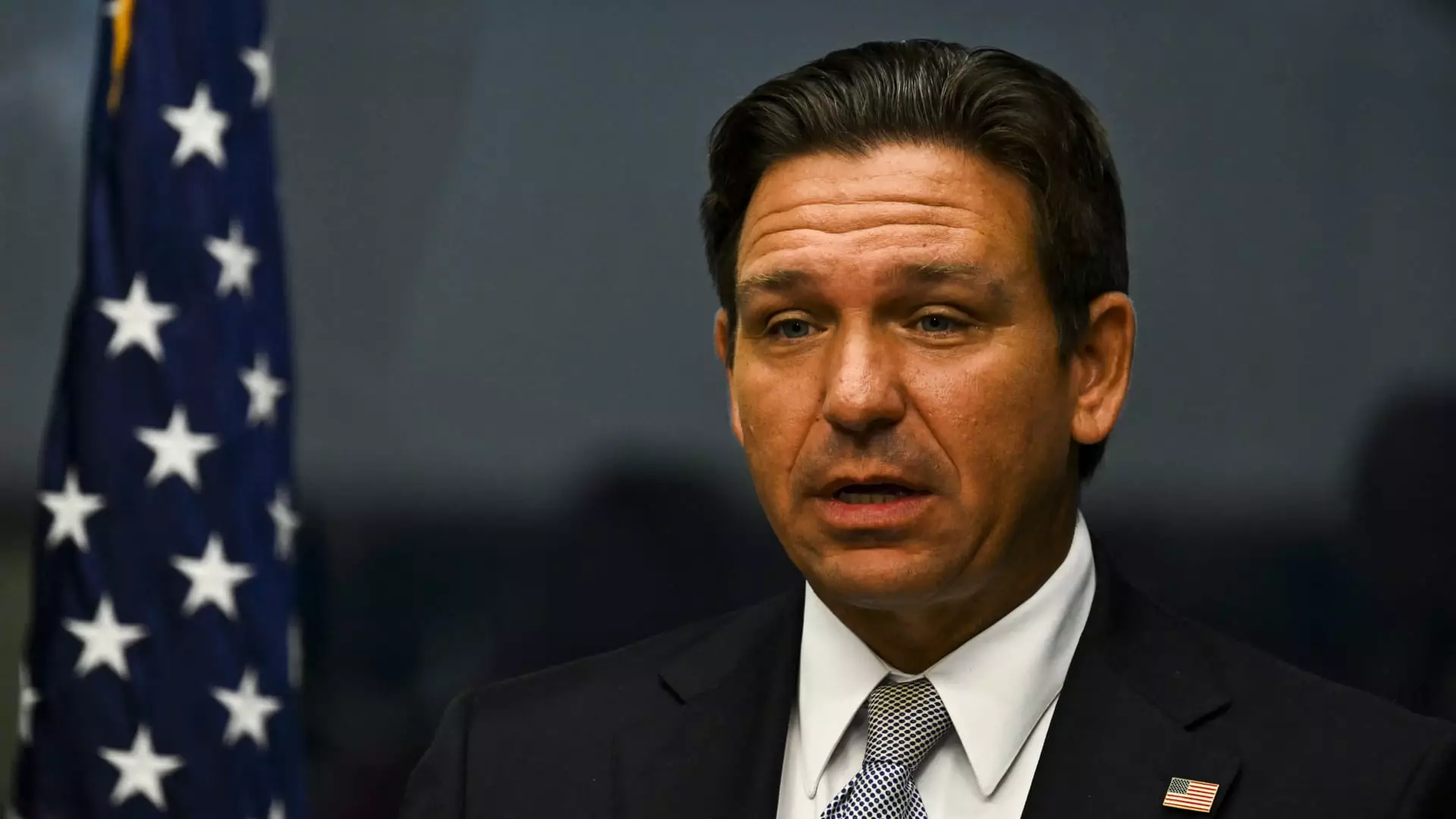In the wake of Hurricane Helene’s devastating impact on Florida, the dynamics of political relations between state and federal leaders came under intense scrutiny. Governor Ron DeSantis’s reluctance to engage with Vice President Kamala Harris amid the recovery efforts indicates a deeper rift than simply managing crisis communications. This article explores the implications of these interactions—or lack thereof—against the backdrop of disaster recovery and political maneuvering.
Hurricane Helene unleashed its fury on the Big Bend region of Florida, leaving a trail of destruction particularly in rural counties and major cities like Tampa. In response to the storm’s widespread destruction, DeSantis was quick to assert that the situation was under control, positioning himself to manage the crisis without federal interference. Contrasting his dismissive stance toward federal intervention, other Republican governors, such as Georgia’s Brian Kemp, expressed gratitude towards President Biden for timely assistance. This discord in responses highlights a significant ideological divide in managing disaster recovery—a divide steeped in political affiliations.
The friction was palpable as DeSantis reportedly avoided calls from Harris, allegedly perceiving them as politically charged. The notion of a dialogue replete with ulterior motives plays into a larger narrative of political self-preservation in the face of national critiques. This hesitance not only reflects poorly on interpersonal relationships but also undermines the collaborative spirit necessary for effective disaster recovery. By not engaging with federal leaders, DeSantis risks isolating Florida from crucial resources that the federal government can offer, thereby potentially hindering an already laborious recovery process.
The refusal to communicate goes both ways; while DeSantis is reportedly not taking calls from Harris, there is also an indication of minimal outreach from Biden’s end regarding the impending threat of Hurricane Milton. This lack of dialogue could have serious ramifications for disaster readiness, especially as the specifics of Milton’s trajectory were expected to heavily impact the same regions battered by Helene. When leaders fail to communicate effectively during times of crisis, they not only jeopardize their state’s immediate recovery but also set a concerning precedent for future engagements.
The stark contrast in disaster responses highlights a larger narrative of political rivalry. DeSantis’s decision to publicly state that the federal government should concentrate its efforts on North Carolina, rather than Florida, underscores a trend where political allegiance takes precedence over collaborative governance. Moreover, former President Donald Trump’s inflammatory social media commentary about the broader situation adds another layer to this complex political landscape. By propagating false narratives and engaging in overtly partisan rhetoric, he further complicates the already fraught relationship between local and federal leaders during critical recovery efforts.
As the impending threat of Hurricane Milton looms, it becomes apparent that the stakes are growing higher. DeSantis’s previous delays in coordinating with federal officials could have adverse effects as Florida braces for another significant weather event. With many resources already drained from the efforts to recover from Helene, the state faces an uphill battle if bureaucratic tensions persist. The question of whether state officials prioritize politics over preparedness remains at the forefront of this unfolding crisis.
The refusal of Governor DeSantis to communicate with federal counterparts during times of dire need underscores a troubling trend of partisanship that could have life-altering consequences for residents affected by disasters. As Florida navigates the immediate aftermath of Hurricane Helene and prepares for Hurricane Milton, it is essential for leaders to transcend political animosities for the sake of effective disaster management. Rebuilding trust and fostering open lines of communication between local and federal authorities will be paramount to restoring Florida in the wake of impending storms. The citizens of this battered state deserve a government that prioritizes their well-being above all, rather than succumbing to the divisive nature of political discourse.


Leave a Reply